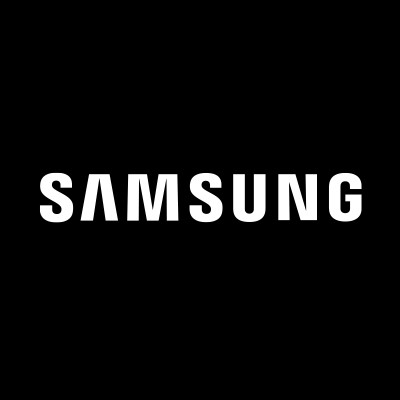The Rise of RuStore: A New Era for Russian Electronics?
August 15, 2024, 4:21 am

Location: United States, California, San Francisco
Employees: 10001+
Founded date: 1938
Total raised: $6.4B
In the heart of Russia's tech landscape, a storm brews. A proposed law threatens to reshape the market for smartphones and other electronic devices. The law mandates that all devices sold in Russia must come pre-installed with RuStore, a national app store managed by VK. This move aims to curb the dominance of foreign giants like Apple and Samsung. But at what cost?
The law, championed by Anton Gorelkin, a member of the State Duma's committee on information policy, has ignited fierce debate. Proponents argue it levels the playing field for Russian developers. Critics, however, warn of dire consequences for retailers and consumers alike.
Retailers are on edge. The Association of Trade Companies and Manufacturers of Electrical and Computer Equipment (RATEK) has voiced strong opposition. They fear significant financial losses if the law passes. Apple, Samsung, Huawei, and Honor are all in the crosshairs. The proposed law could force retailers to abandon these brands, leading to a surge in gray market sales.
Imagine a bustling electronics store. Shelves lined with the latest gadgets. Customers browsing, excited to find their next device. Now, picture those shelves empty. Retailers unable to sell popular brands. The law could turn this vision into reality.
RATEK's letter to government officials paints a grim picture. They argue that the law would cripple sales. Retailers would be forced to open boxes and install RuStore manually. For Apple products, this is a logistical nightmare. There’s no workaround. The law could push many stores to the brink of closure.
The government’s rationale is clear. RuStore is seen as a way to promote local developers and reduce reliance on foreign platforms. But the reality is more complex. RuStore currently struggles to gain traction. Despite over 70 million installations, it has yet to turn a profit. The hope is that mandatory pre-installation will boost its user base and, eventually, its revenue.
Yet, the stakes are high. RATEK estimates that the law could cost the Russian budget around 50 billion rubles in lost customs duties. Apple alone contributes significantly to this figure. The company’s turnover in Russia is around 250 billion rubles. The potential loss is staggering.
The proposed law also extends beyond RuStore. It requires devices to support payment systems linked to VK’s app store. This could further alienate foreign manufacturers. The implications are clear: the market could shrink, and consumers may face fewer choices.
The government’s push for RuStore reflects a broader trend. It’s part of a strategy to bolster national technology and reduce dependence on foreign entities. However, this approach raises questions about innovation and competition. Will forcing manufacturers to comply with local regulations stifle creativity? Or will it foster a new wave of Russian tech?
The electronics market is a delicate ecosystem. It thrives on competition and diversity. Introducing a mandatory app store could disrupt this balance. Retailers fear that consumers will turn to gray markets for their devices. This could lead to a decline in legitimate sales and further financial strain on businesses.
Moreover, the law’s implementation could be chaotic. Retailers may struggle to adapt. The requirement to pre-install RuStore could lead to delays and confusion. Customers expect seamless experiences. Any hiccup could drive them away.
As the debate unfolds, the future of RuStore hangs in the balance. Will it emerge as a viable alternative to foreign app stores? Or will it become a symbol of overreach? The answer remains uncertain.
The Russian government is betting on RuStore. They envision a thriving platform that supports local developers. But the path forward is fraught with challenges. The tech landscape is evolving rapidly. Consumer preferences shift like sand. What works today may not work tomorrow.
In the end, the success of RuStore will depend on its ability to attract users. It must offer compelling apps and services. If it fails to do so, the law could backfire. Consumers may resist, opting for foreign alternatives instead.
The proposed law is a gamble. It seeks to reshape the electronics market in Russia. But the risks are substantial. Retailers, consumers, and manufacturers are all caught in the crossfire. The outcome remains to be seen.
As autumn approaches, the fate of RuStore will be decided. Will it rise to prominence, or will it falter under the weight of its own ambitions? The clock is ticking. The tech world watches closely. The stakes are high, and the implications are profound. The future of Russian electronics hangs in the balance.
The law, championed by Anton Gorelkin, a member of the State Duma's committee on information policy, has ignited fierce debate. Proponents argue it levels the playing field for Russian developers. Critics, however, warn of dire consequences for retailers and consumers alike.
Retailers are on edge. The Association of Trade Companies and Manufacturers of Electrical and Computer Equipment (RATEK) has voiced strong opposition. They fear significant financial losses if the law passes. Apple, Samsung, Huawei, and Honor are all in the crosshairs. The proposed law could force retailers to abandon these brands, leading to a surge in gray market sales.
Imagine a bustling electronics store. Shelves lined with the latest gadgets. Customers browsing, excited to find their next device. Now, picture those shelves empty. Retailers unable to sell popular brands. The law could turn this vision into reality.
RATEK's letter to government officials paints a grim picture. They argue that the law would cripple sales. Retailers would be forced to open boxes and install RuStore manually. For Apple products, this is a logistical nightmare. There’s no workaround. The law could push many stores to the brink of closure.
The government’s rationale is clear. RuStore is seen as a way to promote local developers and reduce reliance on foreign platforms. But the reality is more complex. RuStore currently struggles to gain traction. Despite over 70 million installations, it has yet to turn a profit. The hope is that mandatory pre-installation will boost its user base and, eventually, its revenue.
Yet, the stakes are high. RATEK estimates that the law could cost the Russian budget around 50 billion rubles in lost customs duties. Apple alone contributes significantly to this figure. The company’s turnover in Russia is around 250 billion rubles. The potential loss is staggering.
The proposed law also extends beyond RuStore. It requires devices to support payment systems linked to VK’s app store. This could further alienate foreign manufacturers. The implications are clear: the market could shrink, and consumers may face fewer choices.
The government’s push for RuStore reflects a broader trend. It’s part of a strategy to bolster national technology and reduce dependence on foreign entities. However, this approach raises questions about innovation and competition. Will forcing manufacturers to comply with local regulations stifle creativity? Or will it foster a new wave of Russian tech?
The electronics market is a delicate ecosystem. It thrives on competition and diversity. Introducing a mandatory app store could disrupt this balance. Retailers fear that consumers will turn to gray markets for their devices. This could lead to a decline in legitimate sales and further financial strain on businesses.
Moreover, the law’s implementation could be chaotic. Retailers may struggle to adapt. The requirement to pre-install RuStore could lead to delays and confusion. Customers expect seamless experiences. Any hiccup could drive them away.
As the debate unfolds, the future of RuStore hangs in the balance. Will it emerge as a viable alternative to foreign app stores? Or will it become a symbol of overreach? The answer remains uncertain.
The Russian government is betting on RuStore. They envision a thriving platform that supports local developers. But the path forward is fraught with challenges. The tech landscape is evolving rapidly. Consumer preferences shift like sand. What works today may not work tomorrow.
In the end, the success of RuStore will depend on its ability to attract users. It must offer compelling apps and services. If it fails to do so, the law could backfire. Consumers may resist, opting for foreign alternatives instead.
The proposed law is a gamble. It seeks to reshape the electronics market in Russia. But the risks are substantial. Retailers, consumers, and manufacturers are all caught in the crossfire. The outcome remains to be seen.
As autumn approaches, the fate of RuStore will be decided. Will it rise to prominence, or will it falter under the weight of its own ambitions? The clock is ticking. The tech world watches closely. The stakes are high, and the implications are profound. The future of Russian electronics hangs in the balance.

